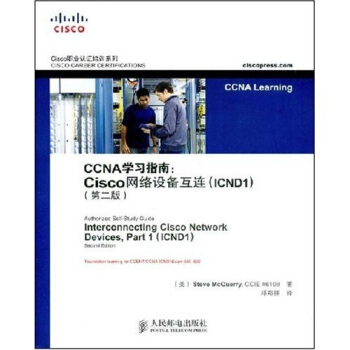

具体描述
编辑推荐
《英语同声传译教程》将口译技能与口译专题有机地结合在一起,按专业译员应该掌握的同传技能的先后顺序安排教程的框架,同时每—个单元紧扣一个专题,使学习者在掌握口译基本技能的同时,了解专题口译应该掌握的知识、术语等。内容简介
《英语同声传译教程》以同声传译技能为主线安排教程的框架,突出强调同声传译训练的技能性原则;以口译专题(如经贸合作、知识产权、文化交流、科技创新等)来安排练习的内容,突出强调同声传译的实践性原则;以全真会议录音为训练材料,突出强调同声传译训练的真实性原则。作者简介
仲伟合,广东外语外贸大学副校长、博士、教授、翻译学博士生导师。曾先后留学英国、美国。目前兼任国务院学位委员会“全国翻译硕士专业学位教育指导委员会”副主任委员、教育部高校外语专业教学指导委员会委员、全国翻译专业资格(水平)考试英语专家委员会委员、中国翻译工作者协会常务理事、专家会员、广东省翻译协会副会长、广州翻译协会、广州科技翻译协会副理事长、广州外事翻译协会副会长等。国家级精品课程“英语口译(课程系列)”主持人、广东省高等教育教学名师、广东省杰出留学归国青年创业之星、全国优秀教师及广东省青年“五四”奖章获得者。曾为多位国家、省市领导人及外国国家元首、政商耍人等担任口译工作,从上个世纪90年代开始,已担任数百场国际会议的同声传译工作。已主编出版国家级规划专业口译教材两部、其他著作、辞典等多部,在《中国翻译》等学术期刊发表论文50余篇,承担多项省部级科研项目。目录
影子练习:国际关系主题Topic for Interpreting:International Relations
第一单元 同声传译概论
Unit One Introduction to SimuLtaneous Interpreting
第一部分 技能篇
1.同声传译的概念
2.同声传译的发展历史
3.同声传译的工作程序
4.同声传译译员素养要求
第二部分 练习篇
Exercise One
Exercise Two
Exercise Three
记忆复述练习:和平与发展主题
Topic for Interpreting:Peace and Development
第二单元 同声传译记忆
Unit Two Memory in Simultaneous Interpreting
第一部分 技能篇
1.源语单语连续复述
2.源语单语同声复述
3.源语单语延迟复述
第二部分 练习篇:记忆复述练习
Exercise One
Exercise Two
目标语复述练习:外交事务主题
Topic for Interpreting:Foreign Affairs
第三单元 同声传译中的注意力分配
Unit Three Split of Attentionin Simultaneous Interpreting
第一部分 技能篇
1.理论概述
2.技能指导
第二部分 练习篇:目的语复述练习
Exercise One
Exercise Two
视译练习:世贸组织主题
Topic for Interpreting:WTO(World Trade Organization)
第四单元 视译
Unit Four Sight Interpreting
第一部分 技能篇
1.何为视译?
2.如何对视译进行准备工作?
3.如何练习视译?
第二部分 练习篇:视译练习
Exercise One
EXercise Two
深度视译练习:中国经济主题
Topic for Interpreting:Chinas Economy
第五单元 同声传译基本原则
Unit Five Principles of Simultaneous Interpreting
……
同传技巧练习:商务合作主题
Topic for Interpreting:Business Cooperation
第六单元 同声传译技巧(1)
Unit Six Simultaneous Interpreting Skills(Ⅰ)
同传技巧练习:全球竞争与合作主题
Topic for Interpreting:Global Competition and Cooperation
第七单元 同声传译技巧(2)
Unit Seven Simultaneous Interpreting Skills(Ⅱ)
应对策略练习:旅游与酒店业主题
Topic for Interpreting:Tourism and Hotelling
第八单元 同声传译应对策略
Unit Eight Coping Tactics in imultaneous Interpreting
金科玉律练习:物流产业主题
Topic for Interpreting:Logistics
第九单元 同声传译金科玉律
Unit Nine The Golden Rules of Simultaneous Interpreting
同传实战演练:体育活动主题
Topic for Interpreting:Sports
第十单元 同声传译设备
Unit Ten Simultaneous Interpreting Facilities
同传实战演练:教育发展主题
Topic for Interpreting:Education
第十一单元 同传译员的工作条件与职业操守
Unit Eleven Code of Conducts for Simultaneous Interpreting
译前准备练习:科技创新主题
Topic for Interpreting:Sci-tech Innovation
第十二单元 同声传译的译前准备工作
Unit Twelve Preparation for Simultaneous Interpreting
模拟会议练习:产业升级主题
Topic for Interpreting:Industrial Upgrading
第十三单元 国际会议
Unit Thirteen Introduction to International Conferences
模拟会议练习:常见会议主题
Topic for Interpreting:Popular Conference Topics
第十四单元 常见会议主题
Unit Fourteen Introduction to Popular Conference Topics
第十五单元 复习与测试
Unit Fifteen Revision and Model Tests
附录
精彩书摘
Before I conclude, let me tel! you a little secret. And I learnt this secret in visiting thelibrary of the WTO. There is in this library an apocryphal and funny Secretariat guide to thelanguage of trade negotiators in the old GATT. Now this guide tells you that, in those years,when negotiators said "Mr Chairman, we seek a balanced agreement", what they really meantwas "this agreement had better contain everything we demand"; when the negotiators saidin those times "we have demonstrated flexibility", they really meant "we have successfullyconcealed our intransigence"; and when the negotiators announced "we are prepared to makeour contribution to an ambitious outcome", they really meant "we will only support agreementswhere others make all the concessions, and we make none"! This attitude, as we all very wellknow, is part of our past.This is the past because today, what we really need are negotiators that are bold, open-minded and prepared to take some risks, as successful shareholders and stakeholders do it.Ministers, we all know that, often face the difficult task of explaining to national constituenciesthat they gain something in negotiations, even if the negotiating process is not over. The manypeople who benefit from open trade are usually politically silent, whereas those fewer whoare affected by opening trade are politically much louder. So we all understand the need ofeach and every delegation to take home some gain from trade negotiations to rebalance thisasymmetry between winners and losers.
The reality is that the true magic of these negotiations is to achieve results where allparticipants are winners, all will be able to declare victory. But for that, some risks have tobe taken. A popular Chinese proverb says "If you dont go into the cave of the tiger, how willyou get its cub?" —— in other words: nothing ventured, nothing gained.
用户评价
阅读《英语同声传译教程》的过程,对我来说是一次深刻的自我认知和能力重塑的旅程。在学习过程中,我发现自己很多过去认为理所当然的理解,其实是有偏差的。例如,我一直以为同传就是能够流利地说两种语言,但这本书让我明白,同传更侧重于“反应速度”和“信息处理能力”。作者在书中详细剖析了“认知负荷”和“输出延迟”这两个概念,并给出了具体的训练方法来克服这些瓶颈。我最受启发的章节是关于“语流与衔接”的讲解。作者强调了在翻译过程中,保持语流的自然和顺畅是至关重要的,他提供了一系列连接词、过渡语和句式变换的技巧,让我们能够将零散的信息串联成逻辑清晰、表达自然的整体。我一直以来都觉得自己的翻译有些“卡壳”,读了这一章之后,我尝试着在练习中更有意识地运用这些技巧,发现翻译的流畅度确实有了明显的提升。此外,书中关于“语用学在同传中的应用”的讨论也让我受益匪浅,作者让我们意识到,在翻译过程中,不仅仅要关注语言的字面意思,更要理解言外之意、潜台词以及说话者的意图。这本书为我打开了一扇新的视角,让我从更深层次去理解同传的精髓。
评分坦白说,我拿起这本书之前,对同传这个领域一直抱着一种“可望而不可即”的神秘感。总觉得这是一项需要天赋异禀才能掌握的技能,普通人很难企及。然而,《英语同声传译教程》彻底颠覆了我的认知。这本书就像一位循循善诱的良师益友,一步一步地引导我走进了同传的殿堂。它没有一开始就抛出晦涩难懂的理论,而是从最基础的“影子练习”(shadowing)开始,循序渐进地引导读者建立对语音、语调、节奏的敏感度。我特别喜欢书中关于“多任务处理能力”的讲解,作者用非常生动的比喻,将同传过程中同时进行听、记、译、说的过程描绘得淋漓尽致,并且给出了具体的训练方法,比如如何分解信息、如何利用短期记忆、如何进行自我纠正等等。我尝试了书中提出的“信息压缩与提取”的练习,发现确实能有效地提高信息处理的速度和准确性。让我惊喜的是,书中还包含了大量的“口译连贯性训练”和“语料库建设”的建议,这对于我这种习惯于“临时抱佛脚”的学习者来说,无疑是重要的提醒。作者强调了持续练习和积累的重要性,并提供了多种复习和巩固的方法。我开始意识到,同传并非遥不可及,而是可以通过系统性的训练和不懈的努力来实现的。这本书的实用性极强,每一章的理论讲解都配有相应的练习题和范例,让我能够立即将学到的知识付诸实践。
评分对于我这样一位在工作中经常需要进行跨语言沟通,但又长期缺乏系统性同传训练的职场人士来说,《英语同声传译教程》简直是及时出现的“救星”。在阅读这本书的过程中,我被其内容之详实、讲解之细致所深深折服。书中对于同传过程中最核心的“听、记、译、说”四个环节进行了拆解,并分别给出了针对性的训练方法。我特别欣赏书中的“笔记技巧”部分,作者不仅介绍了经典的形义词、省略、符号等笔记方法,更重要的是,他结合实际的同传场景,详细讲解了如何在短时间内记录下关键信息,并如何根据笔记进行高效的还原。我以前总是觉得笔记是多此一举,甚至会干扰我的听力,但读了这本书之后,我才明白,正确的笔记技巧是提升同传效率的基石。书中还包含了“数字、日期、专业术语的翻译策略”,这对我这种经常接触到专业领域内容的人来说,简直是雪中送炭。作者提供了大量的实例和练习,让我能够迅速掌握这些关键信息的处理方法。我尝试了书中提供的“模拟会议口译练习”,发现自己在听辨和记录信息的速度和准确性上都有了显著的提升。这本书的实用性毋庸置疑,它真正地从读者的实际需求出发,提供了切实可行的解决方案。
评分这本书的出现,对我这个长期以来在学术和工作场合都饱受同传困扰的人来说,简直是一场及时雨。我一直在寻找一本能够系统性地讲解同传技巧,并且能够帮助我建立清晰学习路径的教材,而这本《英语同声传译教程》恰恰满足了我的所有期待。从书的封面设计到内容排版,都透露出一种严谨而又不失亲和力的学术风格。翻开第一页,我立刻被作者扎实的理论功底所吸引。书中的理论部分并非空泛的理论堆砌,而是紧密结合实际的同传场景,深入浅出地剖析了同传过程中可能遇到的各种挑战,例如信息处理的瓶颈、记忆力的局限、语言转换的难度等等。作者不仅指出了问题,更重要的是,他提供了一系列行之有效的解决策略。尤其让我印象深刻的是关于“信息捕捉与预测”的章节,作者通过大量实例,教会我如何高效地捕捉讲话者的关键信息,并运用语境和逻辑进行预测,从而在脑海中预先构建出下一句话的框架。这对于我这种容易在信息洪流中迷失方向的学习者来说,简直是醍醐灌顶。此外,书中关于“听辨与注意力管理”的讲解也十分到位,教会了我如何在嘈杂的环境中集中注意力,识别口音和语速的变化,以及如何克服心理压力,保持镇定。这本书的语言风格也很棒,既有学术的严谨,又不失通俗易懂,即使是初学者也能轻松理解。我迫不及待地想要开始实践书中的练习,相信它一定会成为我同传学习道路上最得力的助手。
评分作为一名英语学习爱好者,我一直对同声传译这项技能充满好奇,但总觉得门槛很高。直到我翻开这本《英语同声传译教程》,我才发现,原来同传的学习也可以如此系统化和循序渐进。《教程》的内容编排非常合理,从基础的发音和听力训练,到复杂的语篇分析和策略运用,层层递进,非常适合初学者。我尤其喜欢书中关于“语音模仿与语调训练”的章节,作者通过大量的模仿练习,帮助我纠正了发音中的一些长期存在的误区,并掌握了如何模仿母语人士的语调和节奏,这对于提高口译的自然度和流畅度至关重要。书中还提到了“记忆力训练”,我一直以为记忆力是天生的,但这本书让我了解到,记忆力是可以训练的。作者提供了一些非常有趣的记忆法,比如联想法、编码法等,我尝试了其中的几种,发现确实对提高信息记忆的效率有很大帮助。我最欣赏的是书中对于“不同类型口译的特点与技巧”的分析,例如会议口译、商务口译、新闻口译等等,每一种类型都有其独特的挑战和应对策略。作者通过大量的案例分析,让我们能够清晰地了解到这些差异,并能够针对性地进行训练。这本书让我看到了同传学习的希望,也给了我明确的学习方向。
评分我一直认为,同传这项技能不仅仅是语言能力的体现,更是逻辑思维能力、信息处理能力以及抗压能力的综合考验。《英语同声传译教程》恰恰从这些多个维度,为我提供了系统性的训练和指导。书中有一个章节专门讲解了“逻辑连接词与句法结构分析”,作者通过大量实例,教我如何识别讲话者语言中的逻辑关系,如何利用这些关系预测下文,以及如何在翻译中保持逻辑的连贯性。这对我这种容易在信息流中迷失方向的学习者来说,简直是福音。我一直为自己在翻译过程中,句子结构容易混乱而苦恼,读了这一章之后,我才意识到,理解讲话者的逻辑是构建流畅译文的关键。此外,书中关于“语速与停顿的把握”的讲解也让我受益匪浅。作者强调了同传过程中,语速和停顿的恰当运用能够极大地影响信息的传递效果,他提供了一些实用的技巧,比如如何在停顿处进行信息加工,如何在语速过快时进行适当的省略等等。我尝试着在练习中更有意识地去调整自己的语速和停顿,发现译文的清晰度和可理解性都有了显著的提升。这本书让我看到了同传学习的深度和广度,也让我对未来的学习充满了期待。
评分我一直认为,同传不仅是语言的转换,更是文化的传递和思想的沟通。而《英语同声传译教程》在这方面给予了我前所未有的启发。书中有一章节专门探讨了“跨文化交际中的同传挑战”,我读了之后豁然开朗。作者详细分析了不同文化背景下,人们的思维方式、表达习惯、甚至肢体语言的差异,以及这些差异在同传过程中可能引发的误解和障碍。他不仅指出了这些问题,更重要的是,他提供了一系列应对策略,比如如何理解言外之意、如何处理含蓄的表达、如何识别文化习语等等。我一直以来都在为如何准确传达一些带有深刻文化内涵的表达而苦恼,这本书就像是为我打开了一扇新的大门。书中关于“语境分析与策略选择”的讲解也十分精彩,作者强调了在翻译过程中,理解讲话者的真实意图比字面意思更重要,并且鼓励译者根据不同的语境和受众,灵活运用各种翻译策略。例如,当遇到无法直接翻译的词汇或概念时,如何进行解释性翻译,如何进行意译,甚至如何进行适当的省略。这本书让我意识到,同传不仅仅是技术的运用,更是智慧的体现。我开始尝试在练习中更有意识地去捕捉和理解这些深层次的文化信息,并且主动去寻找能够准确传达这些信息的表达方式。
评分这本《英语同声传译教程》给我最大的感受是,它不仅仅是一本教材,更像是一位经验丰富的同传大师在耳边细语,将他多年的从业经验和独门秘籍倾囊相授。从最初的“听力基础训练”,到“信息捕捉与预测”,再到“语境分析与策略选择”,每一个环节都设计得如此巧妙,让我能够清晰地看到自己的学习路径。我尤其喜欢书中关于“直译与意译的平衡”的讨论。作者并没有简单地告诉你哪种方法更好,而是强调了在不同的语境下,需要灵活运用这两种策略。他通过大量的案例分析,展示了如何根据说话者的意图、受众的理解能力以及传播目的,来选择最恰当的翻译方式。这让我摆脱了过去那种“死抠字眼”的翻译误区,学会了从更宏观的角度去把握翻译的尺度。我一直以来都觉得自己在处理一些文化色彩浓厚的表达时力不从心,而这本书中的“跨文化交际中的翻译挑战”章节,为我提供了极大的帮助。作者不仅指出了问题,更给出了切实可行的解决方案,比如如何进行文化转述、如何选择恰当的比喻等等。我迫不及待地想将这些宝贵的经验运用到实际工作中,相信它会极大地提升我的同传水平,让我能够更自信地面对各种挑战。
评分如果说之前我对同传的理解还停留在“听懂并说出来”的层面,那么读了这本《英语同声传译教程》之后,我才真正体会到同传的“专业性”和“复杂性”。这本书的内容之丰富,足以让我这个初学者感到震撼。我特别欣赏书中关于“同声传译设备与环境准备”的讲解,虽然这部分内容看起来比较基础,但作者将其上升到了“专业素养”的高度,强调了熟悉设备、了解场地对于保障同传质量的重要性。这让我意识到,同传工作不仅仅是语言技能,更是一个系统性的专业服务。书中关于“压力管理与心理调适”的讨论也让我觉得非常贴心。作者并没有回避同传过程中可能出现的紧张、焦虑等负面情绪,反而提供了科学的应对方法,比如深呼吸、积极的自我暗示、以及赛前准备等。这对于我这种容易紧张的人来说,简直是雪中送炭。我最喜欢的是书中提供的“实战案例分析”,作者选取了不同领域、不同场景下的口译案例,进行深入剖析,让我们能够从真实的语料中学习和成长。我尝试着模仿书中的案例进行练习,发现自己在处理一些复杂句式和专业术语时,有了更清晰的思路和更有效的策略。这本书让我对同传有了全新的认识,也激发了我深入学习的动力。
评分当我拿到这本《英语同声传译教程》的时候,我并没有抱太高的期望,因为我之前接触过一些同传资料,总觉得它们要么过于理论化,要么过于碎片化,难以形成系统性的学习。但是,这本书完全超出了我的预期。它最大的亮点在于其“实战性”。书中不仅仅讲解理论,更是将理论与大量的实际应用场景紧密结合。我印象最深刻的是关于“处理听不清、听不懂的信息”的章节,作者给出了非常实用的技巧,比如如何通过语境推断、如何用通用表达代替、如何委婉地请求对方重复等等。这对于我这种经常在会议中因为听不清而尴尬的人来说,简直是福音。书中还包含了大量的“口译错误分析与纠正”的案例,通过对这些案例的分析,我能够深刻地认识到自己在实践中可能犯的错误,并提前做好预防。我喜欢作者在书中反复强调的“知己知彼”的原则,既要了解自己的语言能力和认知局限,也要了解讲话者的表达习惯和文化背景。这本书让我认识到,同传不仅仅是语言的转换,更是一门关于沟通、策略和应变能力的艺术。我迫不及待地想将书中的技巧运用到实际工作中,相信它会极大地提升我的工作效率和专业形象。
评分复试参考书,好厚
评分包装很好 发货也很快 没有耽误开学用 棒!
评分刚到的,希望不错。哈哈
评分感觉很好啊很不错还可以
评分书还可以,挺好的,还没怎么用
评分复试参考书,好厚
评分还不错吧,但是不太适合自学
评分彩色,有光盘,质量好!!
评分复试参考书,好厚
相关图书
本站所有内容均为互联网搜索引擎提供的公开搜索信息,本站不存储任何数据与内容,任何内容与数据均与本站无关,如有需要请联系相关搜索引擎包括但不限于百度,google,bing,sogou 等
© 2026 book.teaonline.club All Rights Reserved. 图书大百科 版权所有















![数字通信:基础与应用(第二版)/国外电子与通信教材系列 [Digital Communications Fundamentals and Applicstions,Second Edition] pdf epub mobi 电子书 下载](https://pic.qciss.net/11667515/5518a0c8N603ba7b4.jpg)

![光纤通信(第五版)(本科教学版) [Fiber Optic Communications, Fifth Edition ] pdf epub mobi 电子书 下载](https://pic.qciss.net/11713162/5593a54cN589be679.jpg)


